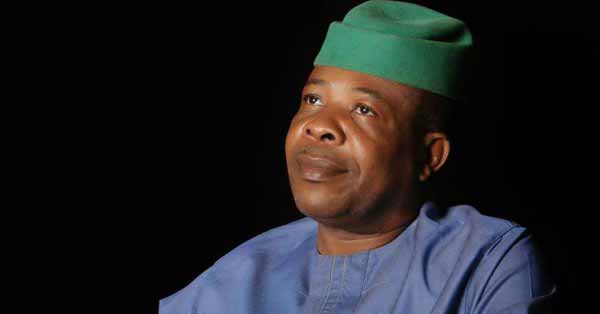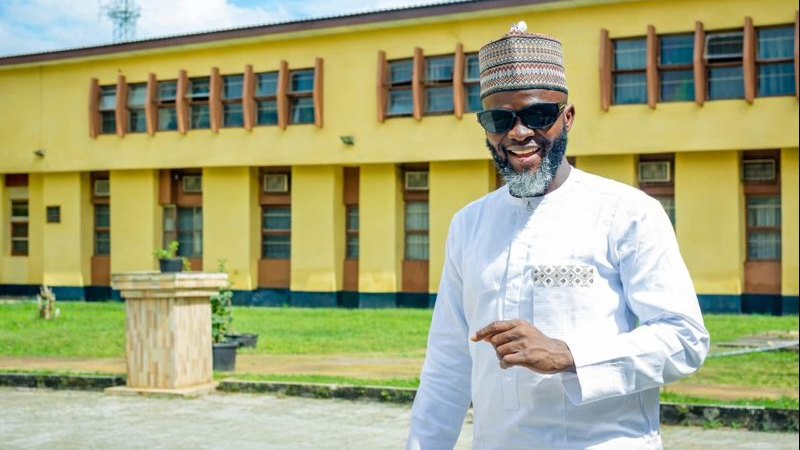
My friend who is based in Atlanta, Georgia, Barr. Uduak Ekot, recently asked me a random question: ”Is your man, Emeka Ihedioha finished politically?” I was taken aback by the question, so I asked why. Uduak’s response showed that his curiosity about Ihedioha made him ask the question, and I don’t blame him.
Ihedioha shook the foundations of the Peoples Democratic Party (PDP) when he announced his resignation from the PDP in a letter addressed to the chairperson of the party in his Mbutu Ward in Aboh Mbaise Local Government Area of Imo state on April 23, 2024.
“Regrettably, in recent times, the party has taken on a path that is at variance with my personal beliefs,” the founding member of the main opposition party wrote in the letter that was plastered over the Nigerian media space within hours.
Uduak must have thought, like the typical Nigerian politician, Ihedioha would announce his new political home in a few days, hence his decision to ask me that question. But, what followed in the next few days, shocked the Nigerian political class, the entire PDP structure in Imo state collapsed. Officials of the party from ward to national levels started sending in their resignation letters. One thing was clear: No other Nigerian politician, outside public office, had such influence as the former Imo state governor.
In the ever-evolving landscape of Nigerian politics, where fleeting alliances and shifting loyalties are often the norm, Emeka Ihedioha stands out as a figure of enduring significance. His political journey, which began in the early 1990s, has been marked by a steadfast commitment to public service, an extraordinary ability to build political capacity and a deep reservoir of political knowledge. Ihedioha is no newcomer to the political arena; he is a seasoned statesman whose contributions have left an indelible mark on Nigeria’s democratic process.
Ihedioha’s political career began humbly but with significant impact when he served as an aide to then-Senate President Iyorchia Ayu from 1992 to 1993. During this period, Ihedioha honed his communication skills and developed an acute understanding of the intricate workings of Nigeria’s legislative process. His tenure, however, was cut short by the abrupt end of the Third Republic due to a military coup, but this setback did not deter him.
Following the dissolution of the civilian government, Ihedioha found a new political home in the Peoples Democratic Movement (PDM), a group led by the late Shehu Yar’adua that played a crucial role in Nigeria’s transition to democracy. As the deputy director of publicity for the PDM, Ihedioha was instrumental in crafting and disseminating the group’s messages, positioning it as the leading democratic force ahead of the 1999 general elections. His strategic communication efforts ensured that the PDM was at the forefront of Nigeria’s return to democracy, laying the groundwork for what would eventually become the Peoples Democratic Party (PDP).
Speaking on Ihedioha’s role during this formative period, former Senate President David Mark once remarked, “Emeka was a young, dynamic force within the PDM. His ability to articulate the vision of the movement and galvanize support was critical to our success in transitioning Nigeria back to democratic rule.”
Ihedioha’s political career took a significant leap forward when he contested for and won the seat for Aboh Mbaise/Ngor Okpala Federal Constituency in the House of Representatives in 2003. As a first-term lawmaker, he quickly distinguished himself by his deep understanding of legislative processes and his commitment to advancing the interests of his constituency. His leadership potential was recognized early on, leading to his appointment as the chairman of the Marine Transport Committee. Under his leadership, the committee made substantial contributions to Nigeria’s maritime sector, laying the foundation for policies that continue to benefit the country to this day.
By 2007, Ihedioha had established himself as a formidable force in the House of Representatives, earning the position of Majority Leader. His tenure as Majority Leader was marked by a robust defence of the legislature’s independence, a stark contrast to the rubber-stamp legislatures that have characterized subsequent dispensations. Ihedioha and his colleagues were known for their principled stands, ensuring that the executive arm of government was held accountable.
One of his colleagues, former Speaker Aminu Waziri Tambuwal, noted, “Ihedioha’s tenure as Majority Leader was a golden era for the House of Representatives. He was a fierce advocate for legislative independence and was never afraid to challenge the executive when necessary.”
In 2011, Ihedioha ascended to Deputy Speaker of the House of Representatives, a role he embraced with characteristic diligence and dedication. Despite initial opposition from then-President Goodluck Jonathan, Ihedioha’s leadership qualities and widespread support among his colleagues propelled him to this high office. His partnership with Speaker Tambuwal is widely regarded as one of the most vibrant and effective in the history of the House of Representatives since Nigeria’s return to democracy in 1999.
Under Ihedioha’s stewardship, the House of Representatives saw the passage of numerous landmark bills, including those that strengthened Nigeria’s electoral process and enhanced the transparency of government operations. His legacy as Deputy Speaker is one of principled leadership, where the interests of the Nigerian people were always placed above political expediency.
Senator Dino Melaye, a contemporary of Ihedioha, once said, “Emeka Ihedioha is one of the finest politicians of our time. His commitment to building a strong, independent legislature has had a lasting impact on our democracy.”
Ihedioha’s political journey reached its zenith in 2019 when he was elected Governor of Imo State, defeating the incumbent All Progressives Congress (APC)-led government in what was widely regarded as a victory for the people. His administration hit the ground running, implementing a series of far-reaching reforms aimed at improving governance and service delivery in the state. Among his most notable achievements was the introduction of the Treasury Single Account (TSA), which brought much-needed transparency to the state’s finances, and the implementation of local government autonomy, which has since been enshrined in Nigerian law.
However, Ihedioha’s governorship was cut short in January 2020 by a controversial Supreme Court ruling that reversed his electoral victory and installed the candidate who had placed fourth in the election. The decision was met with widespread condemnation, both domestically and internationally, and remains one of the most contentious judicial rulings in Nigeria’s history. The fallout from this ruling has had lasting implications for Nigeria’s judiciary, with those involved in the verdict facing sanctions, including visa bans from the United States.
Despite this setback, Ihedioha’s brief tenure as governor left a lasting legacy in Imo State. His efforts to clean up the state capital, Owerri, and his focus on infrastructural development and good governance earned him the respect and admiration of many. His leadership style, characterized by inclusivity and a commitment to the welfare of the people, continues to serve as a model for good governance in Nigeria.
Even out of office, Ihedioha has remained a towering figure in the PDP and Nigerian politics at large. His influence in the PDP is unparalleled, with fierce loyalists who remain committed to his vision for a better Imo State and Nigeria. His decision to step back from the PDP in Imo State, after enduring repeated disrespect from the party’s leadership, led to a mass exodus of party officials in solidarity with him, demonstrating his unmatched influence.
Former Vice President Atiku Abubakar, who worked closely with Ihedioha, once described him as “a rare breed of politician who combines deep political knowledge with a genuine commitment to service. Emeka has paid his dues in the PDP and in Nigeria’s political landscape. His influence is a testament to his capacity to lead and inspire.”
Ihedioha’s political journey is far from over. His leadership capacity and deep understanding of Nigeria’s political landscape are needed now more than ever. As Nigeria continues to grapple with the challenges of nation-building, leaders like Ihedioha, who have demonstrated both the capacity and the will to serve, will be crucial in guiding the country toward a brighter future.
In a political environment often marred by mediocrity and self-interest, Ihedioha stands out as a beacon of hope. His legacy is one of service, integrity, and a deep-rooted belief in the power of democracy. So, to my friend, Uduak, one thing is certain: Emeka Ihedioha is a name that will continue to resonate in the annals of Nigeria’s political history, and no! He is not finished politically, instead, he is a figure to watch in the coming years.
Jerrywright Ukwu, a journalist writes from Abuja. He can be reached at [email protected].






